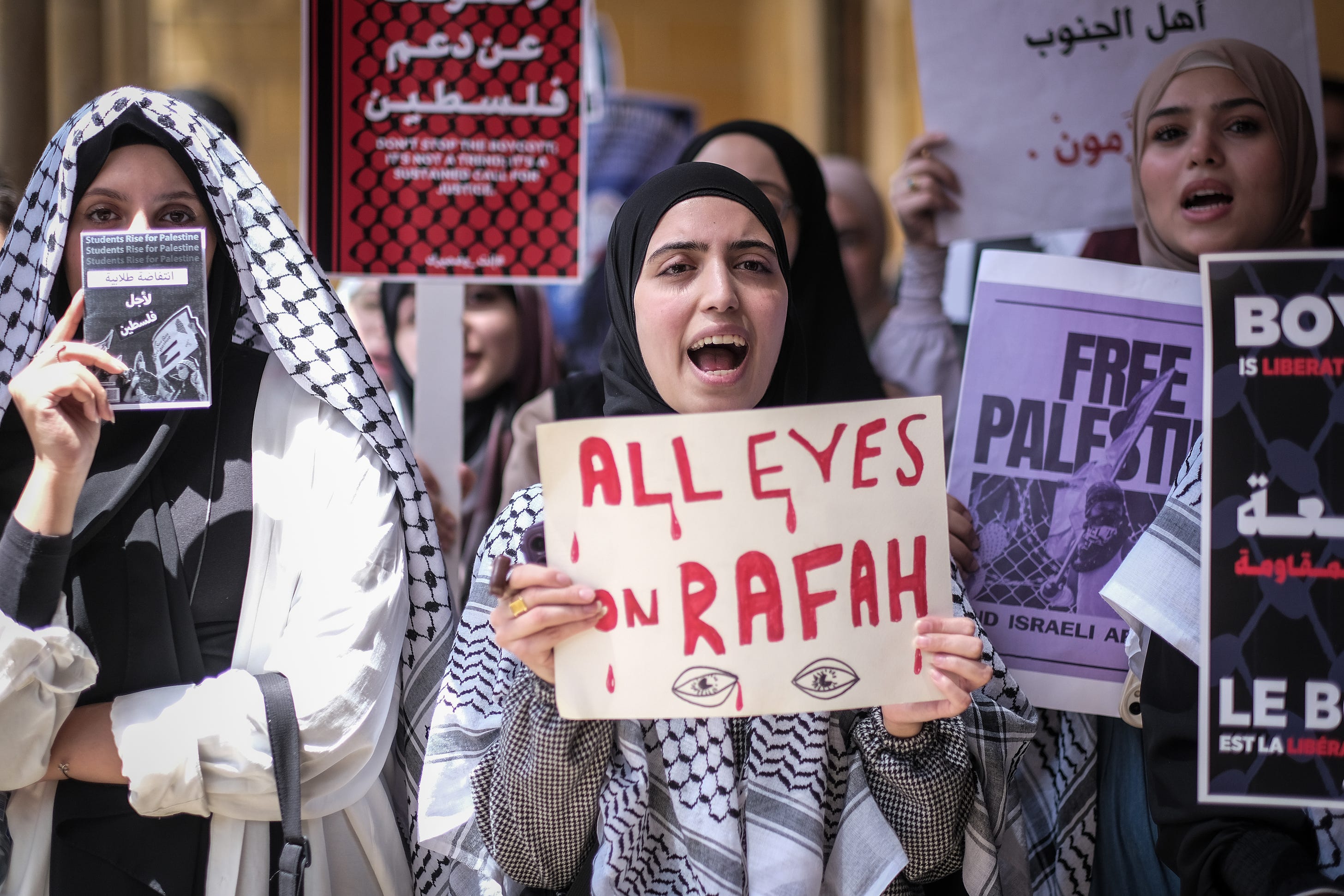|
Hello, everyone.
Each year, the number of displaced people across the globe continues to swell. In the last year, Cyprus, an island nation and European Union member, has ramped up its use of pushbacks to deter refugees and migrants from making the journey by boat. Yet, as Hanna Davis reports, such pushbacks only make the trek more dangerous.
Meanwhile, as student protests against Israel’s war on Gaza draw clampdown and backlash in the US, a solidarity movement has also sparked on the campuses of Lebanon’s academic institutions, Madeline Edwards notes in a new dispatch.
Further east, Rohingya refugees in the world’s largest refugee camp, in Cox’s Bazar, Bangladesh, are on the frontlines of the climate catastrophe. As weather grows more extreme, heat more severe, and flooding more frequent, many in the camps say they need support, Ahtaram Shine writes in a new piece.
That’s not all we’ve got at Inkstick. And if you’re not already, please follow us on Twitter, LinkedIn, Threads, Facebook, Instagram, and YouTube.
“How the Climate Crisis Deepens Hardships for Rohingya Refugees” by Ahtaram Shine (May 6)
To make the circumstances even more trying for Rohingya refugees in Bangladesh, the climate crisis is wreaking havoc on the camp and the surrounding area: rising sea levels, extreme weather, and worrying health issues. During monsoon season, the low-lying area that houses the camp endures cyclones and severe flooding.
“Cheap Fakes: The Global Trade in Counterfeit Drugs” by Jennifer Huxta (May 6)
The story of fake drugs is the story of the road. The new Nairobi Expressway, fast and efficient, accelerates the transport of all goods, including fakes. The promise of new infrastructure in the region leads to investment and the city transforms: excavations for foundations, endless construction, money-laundering empires.
“The Solomon Islands’ Quest for Truth and Reconciliation” by Benjamin Afuga (May 7)
Established in 2008, the Solomon Islands Truth and Reconciliation Commission (TRC) was tasked with investigating the country’s civil conflict that killed 200 people and displaced more than 20,000 others between 1998 and 2003. The commission was the first of its kind in the Pacific Islands region.
“Cyprus Pushbacks Fail to Deter Refugee Boats from Lebanon” by Hanna Davis (May 7)
On Tuesday, April 16, five small fishing boats carrying nearly 500 Syrian refugees set off from Lebanese shores and approached Cyprus. Before they could make it to the island, Cypriot authorities intercepted the boats and pushed them back to the country they had only just fled. The incident came amid a boom of pushbacks that has failed to deter refugees from coming but has put them at greater risk.
“The Next Generation of Arms Controllers Needs Our Help” by Connor Murray (May 8)
To tap into the existing interest and use it to encourage and create the next generation of arms control professionals, we need to undertake a concerted effort to broaden the talent pool. This means visiting places and universities not traditionally associated with international policy programs.
“In Beirut, a Homegrown Student Movement for Palestine” by Madeline Edwards (May 8)
A student solidarity movement has taken root on Lebanon’s university campuses as Israel’s war on the Gaza Strip passes the seven-month mark. For the students rallying against the war, solidarity with Palestinians is an issue that hits close to home.
“Deep Dive: History’s Interpreters” by Emily Tamkin (May 9)
Different politicians and political thinkers depending on their ideologies interpret history differently. But what about regular people? A new study examines the relationship between one’s political ideology and their interpretations of history in six countries, including the US, the UK, and Mexico, among others.
“What Lies Ahead for Rohingya in Myanmar?” by Jessica Olney & Ali Ahmed (May 9)
An uptick in the conflict between Myanmar’s military and an ethnic armed organization in western Rakhine State is raising new concerns about the fate of the Rohingya population. Now, Rohingya and other communities in the northern part of Rakhine State endure a deteriorating humanitarian crisis.
“The Little Book of Pentagon Words in the Pacific” by Isa Arriola(May 10)
Arriola, an Inkstick Creative Capsule resident, has produced a booklet that looks at how certain words employed by the Pentagon to talk about war have circulated within the Mariana Islands, taking root in different ways. While the booklet speaks from a specific place, the Marianas archipelago, and even more specifically, the island of Saipan, the terms’ usage spans Oceania and beyond.
From the desk of Patrick Strickland, managing editor of Inkstick Media.
Photo: Students rally in solidarity with Gaza during a protest in Beirut (João Sousa for Inkstick)
Inkstick’s work is free today. But it’s not free to produce. If our content is something that you’ve come to rely on, please consider making a tax-deductible donation today. Even $5 or $10 a month makes a huge difference. Together, we can change the face of foreign policy.
